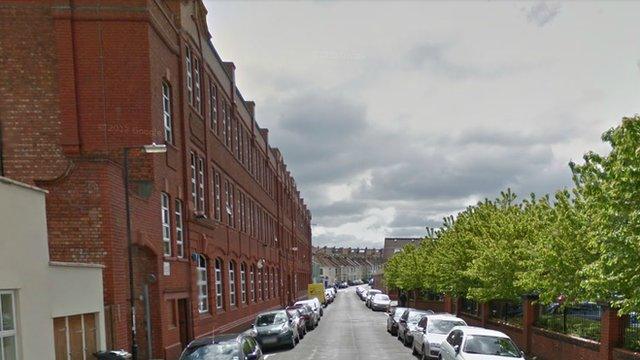Last English-produced cigarettes made in Nottingham
- Published
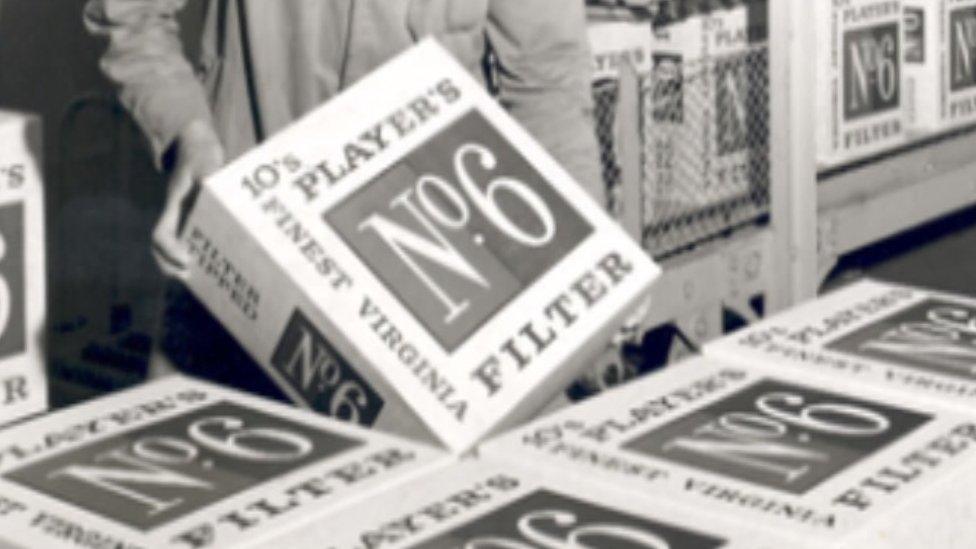
Production at Imperial Tobacco's Horizon factory is now consigned to the history books
The last pack of English-made cigarettes has rolled off the production line as the country's only tobacco factory prepares to shut.
The closure of Imperial Tobacco's Horizon factory in Nottingham was announced two years ago and will lead to over 500 job losses.
Most of the staff will leave next week, with 70 staying on for 18 months as part of the "decommissioning process".
The site's closure has been blamed partly on attitudes to smoking.
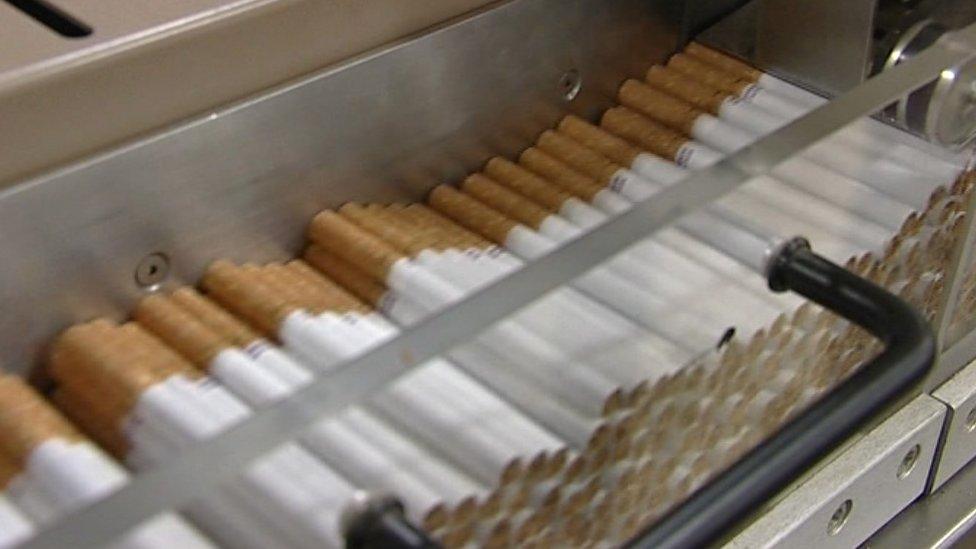
At its height, the site was capable of producing 52 billion cigarettes a year
Chris Needham, regional organiser for the GMB trade union, said at its height, the firm employed 7,000 staff and made 52 billion cigarettes each year.
Mr Needham said operations would move to Poland and Germany, which will increase profits by £320m.
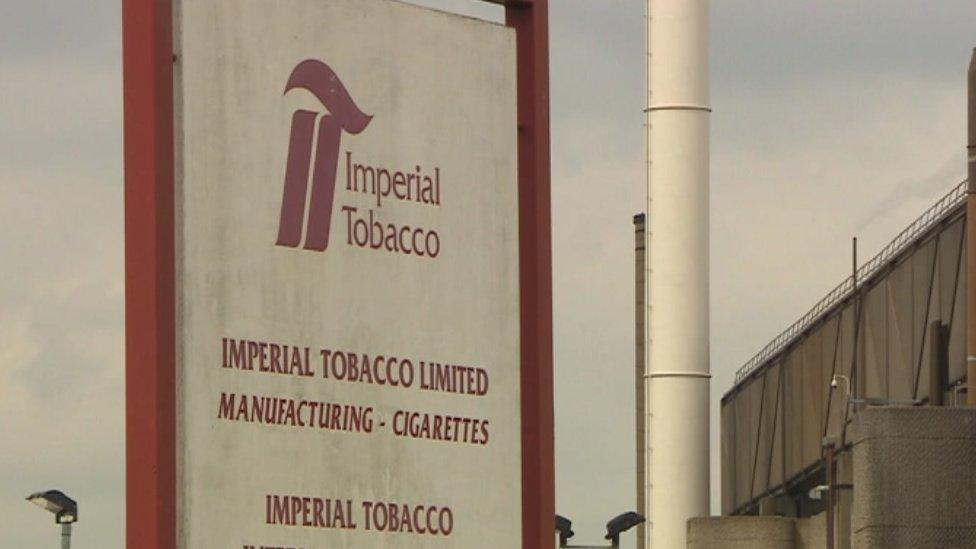
Imperial Tobacco said about 70 staff would remain for up to 18 months as part of the firm's "decommissioning process"
"We're talking about generations that have been manufacturing in Nottingham since 1860," he said.
"The Horizon factory has been part of Imperial Tobacco, worldwide, producing profits in the billions."
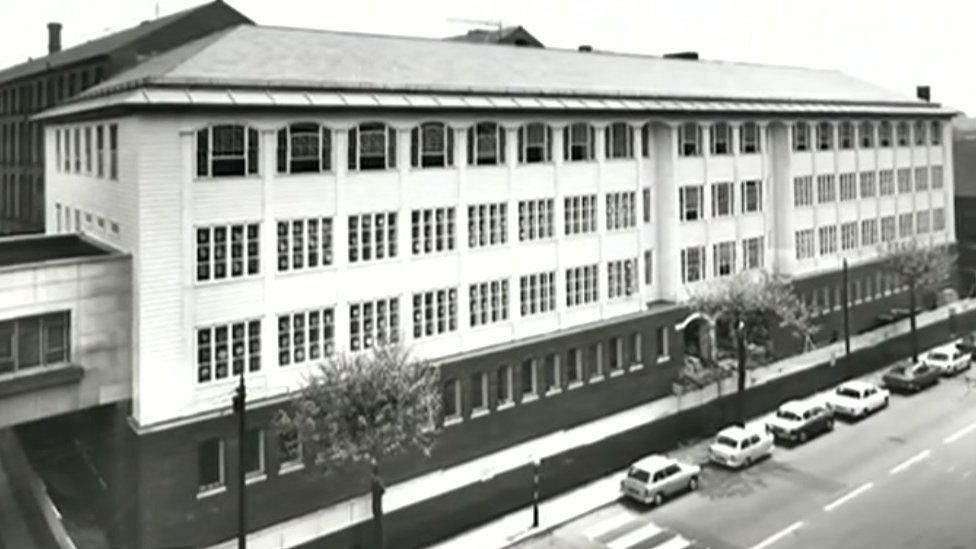
The company's profits will increase by £320m once it moves operations to mainland Europe, union representative Chris Needham said
Mr Needham said 16 to 17 billion cigarettes - or "sticks" as they are known by staff - were produced last year.
"The issue is about quantities," he said. "And the stigma of smoking has been one of the major factors.
"They [the company] are moving to the Asian markets where the stigma is not as great. Iraq, Syria, Russia, China - these are places I'm sure will be targeted by Imperial Tobacco."

History of the Horizon factory
Business founded in Nottingham by John Player, who was registered as a tobacconist in 1871
He became so successful that seven years later he bought a factory and began manufacturing handmade cigarettes
Another three factory blocks had been built in the Radford area of Nottingham by the 1880s
The current Horizon factory opened in 1972. Costing £14m, it was one of the most modern factories of the time

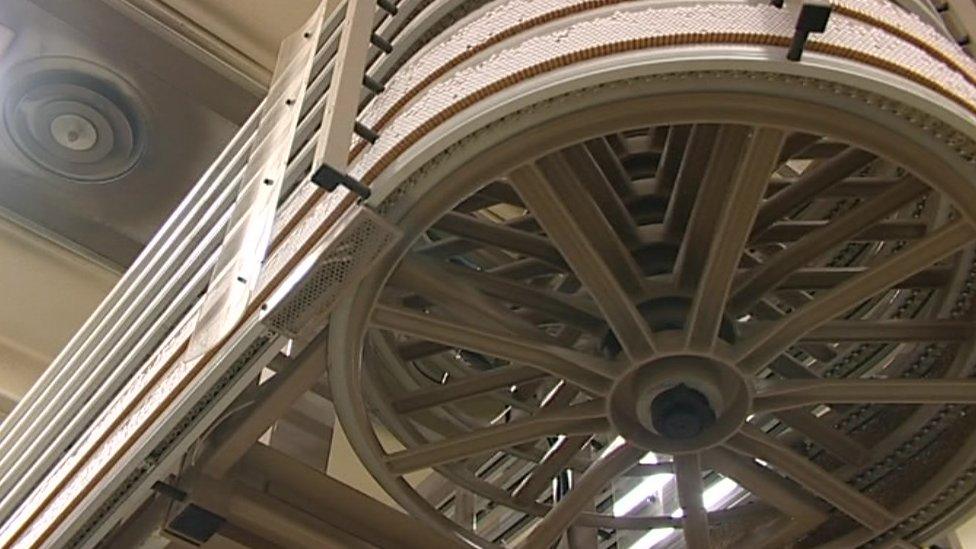
The factory was considered the height of modernity when it opened in the 1970s
Janet May Dangerfield, who worked at the firm in the 1970s after she left school at the age of 15, expressed her sadness at the firm's demise.
"I'm very shocked and sad because I always thought that would always be there," she said.
"I can remember my first day. I was very nervous but straight away, all the older ones - I think they were called the 'front girls' and 'second front girls' - took me under their wing."
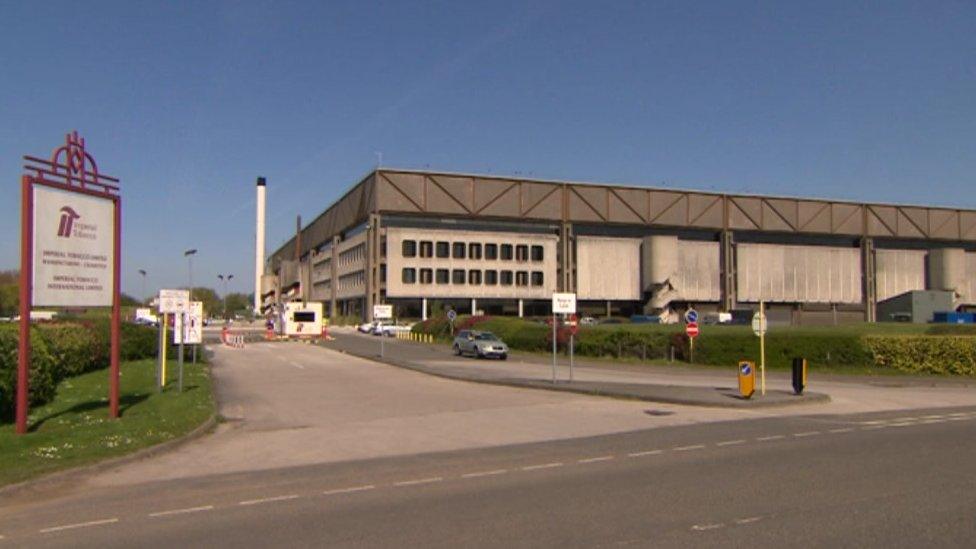
Social attitudes to smoking are partly to blame for the site's decline, according to Mr Needham and history professor John Beckett
When she moved into the "vast" Horizon factory, Mrs Dangerfield said the size of the site made her and other employees look like "little mice".
Bosses at the factory previously blamed falling sales and an increase in the illegal tobacco trade for their decision to move out of the UK.
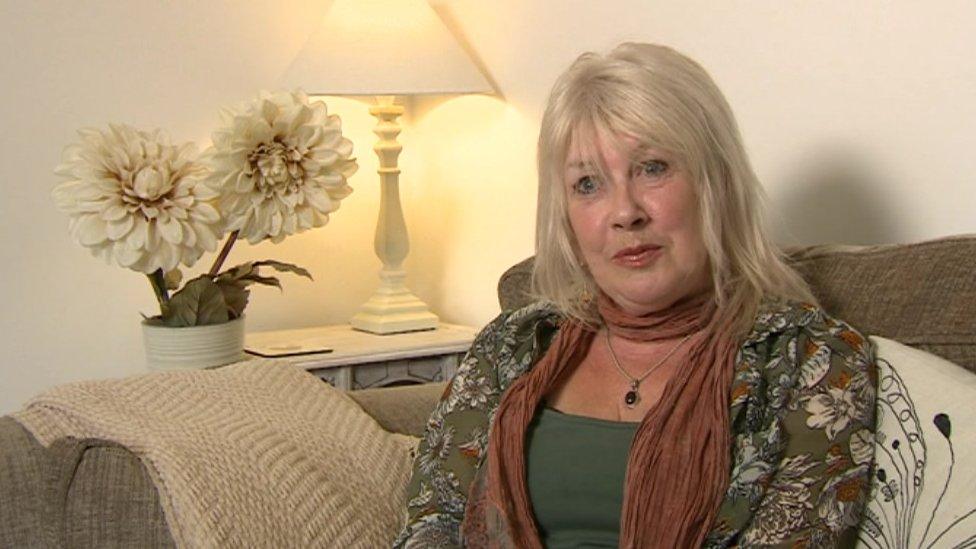
Janet May Dangerfield joined the company straight after leaving school at the age of 15
History professor John Beckett, from the University of Nottingham, said the business was actually a "major contributor" to the funding required for the city's Queen's Medical Centre.
"It's been in decline ever since the first reports in the 1950s that smoking was bad for your health," he said.
"Gradually, much of the production has been moved abroad, much of it into countries where it's cheaper such as Poland... and the demand here has almost collapsed."
A company spokesman confirmed the plans for closure, but did not offer anyone to comment on the latest developments.
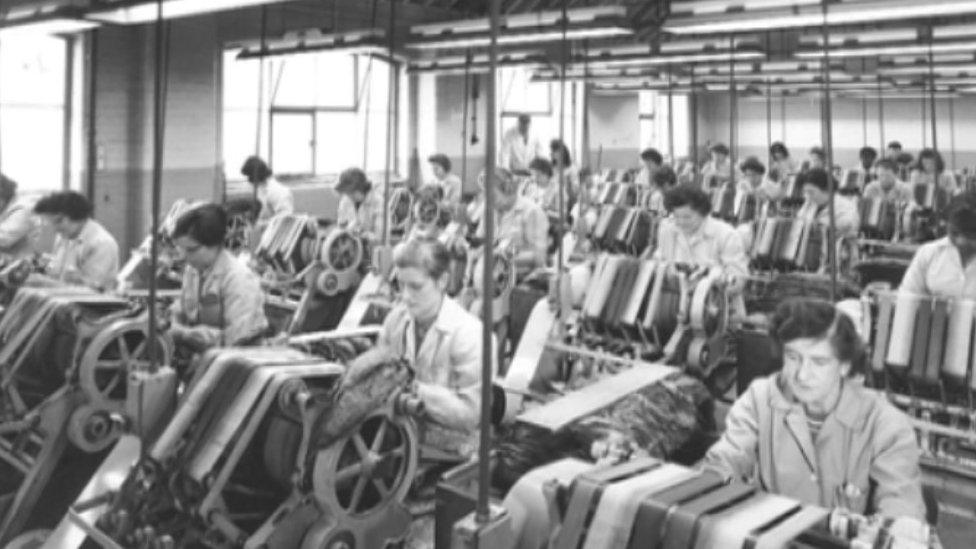
The business was founded by John Player, who was registered as a tobacconist in 1871
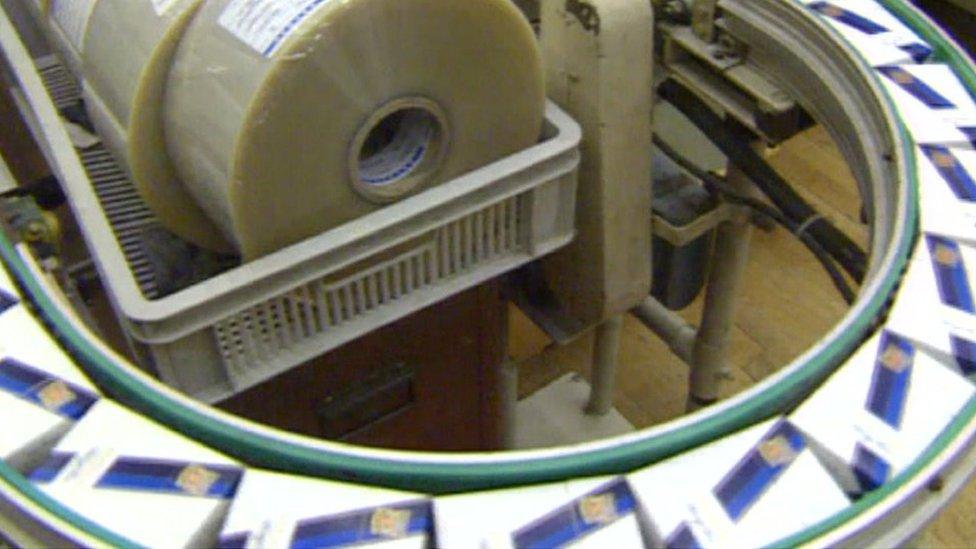
The firm produced cigarette brands including Lambert & Butler and JPS
- Published17 April 2014
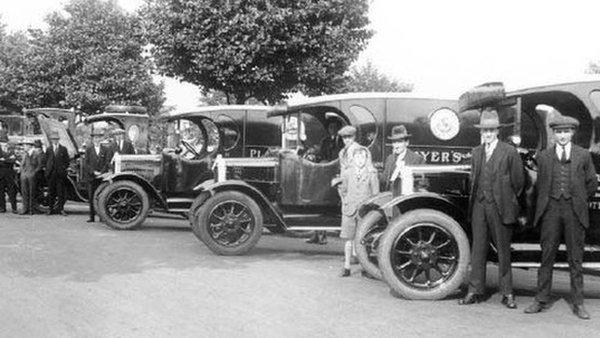
- Published15 April 2014
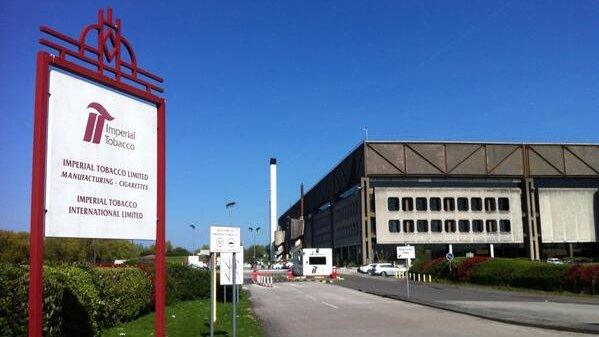
- Published24 April 2013
